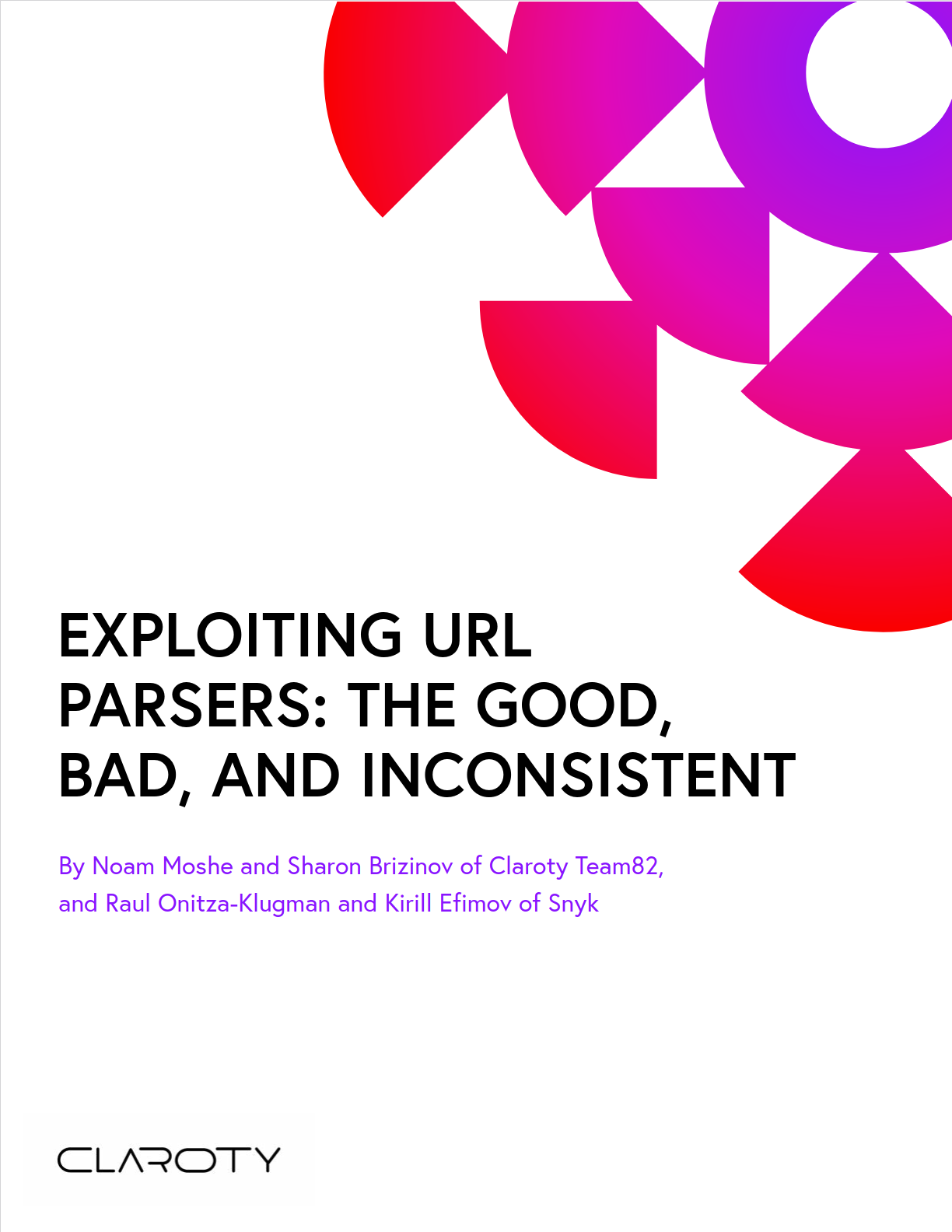I have had my share of adventures with URL parsers and their differences in the past. The current state of my research on the topic of (failed) URL interoperability remains available in this GitHub document.
Use one and only one
There is still no common or standard URL syntax format in sight. A string that you think looks like a URL passed to one URL parser might be considered fine, but passed to a second parser it might be rejected or get interpreted differently. I believe the state of URLs in the wild has never before been this poor.
The problem
If you parse a URL with parser A and make conclusions about the URL based on that, and then pass the exact same URL to parser B and it draws different conclusions and properties from that, it opens up not only for strange behaviors but in some cases for downright security vulnerabilities.
This is easily done when you for example use two different libraries, frameworks or libraries that need to work on that URL, but the repercussions are not always easy to see at once.
A well-known presentation on this topic from 2017 is Orange Tsai’s A New Era Of SSRF – Exploiting Url Parsers.
URL Parsing Confusion
The report EXPLOITING URL PARSERS: THE GOOD, BAD, AND INCONSISTENT (by Noam Moshe, Sharon Brizinov, Raul Onitza-Klugman and Kirill Efimov) was published today and I have had the privilege to have read and worked with the authors a little on this prior to its release.
As you see in the report, it shows that problems very similar to those mr Tsai reported and exploited back in 2017 are still present today, although perhaps in slightly different ways.
As the report shows, the problem is not only that there are different URL standards and that every implementation provides a parser that is somewhere in between both specs, but on top of that, several implementations often do not even follow the existing conflicting specifications!
The report authors also found and reported a bug in curl’s URL parser (involving percent encoded octets in host names) which I’ve subsequently fixed so if you use the latest curl that one isn’t present anymore.
curl’s URL API
In the curl project we attempt to help applications and authors to reduce the number of needed URL parsers in any given situation – to a large part as a reaction to the Tsai presentation from 2017 – with the URL API we introduced for libcurl in 2018.
Thanks to this URL parser API, if you are already using libcurl for transfers, it is easy to also parse and treat URLs elsewhere exactly the same way libcurl does. By sticking to the same parser, there is a significantly smaller risk that repeated parsing bring surprises.
Other work-arounds
If your application uses different languages or frameworks, another work-around to lower the risk that URL parsing differences will hurt you, is to use a single parser to extract the URL components you need in one place and then work on the individual components from that point on. Instead of passing around the full URL to get parsed multiple times, you can pass around the already separated URL parts.
Future
I am not aware of any present ongoing work on consolidating the URL specifications. I am not even aware of anyone particularly interested in working on it. It is an infected area, and I will get my share of blow-back again now by writing my own view of the state.
The WHATWG probably say they would like to be the steward of this and they are generally keen on working with URLs from a browser standpoint. It limits them to a small number of protocol schemes and from my experience, getting them to interested in changing something for the the sake of aligning with RFC 3986 parsers is hard. This is however the team that more than any other have moved furthest away from the standard we once had established. There are also strong anti-IETF sentiments oozing there. The WHATWG spec is a “living specification” which means it continues to change and drift away over time.
The IETF published RFC 3986 back in 2005, they saw the RFC 3987 pretty much fail and then more or less gave up on URLs. I know there are people and working groups there who would like to see URLs get brought back to the agenda (as I’ve talked to a few of them over the years) and many IETFers think that the IETF is the only group that can do it proper, but due to the unavoidable politics and the almost certain collision course against (and cooperation problems with) WHATWG, it is considered a very hot potato that barely anyone wants to hold. There are also strong anti-WHATWG feelings in some areas of the IETF. There is just a too small of a chance of a successful outcome from something that mostly likely will take a lot of effort, will, thick skin and backing from several very big companies.
We are stuck here. I foresee yet another report to be written a few years down the line that shows more and new URL problems.
My URL isn’t your URL.


I really appreciate the recommendation to just parse once. “Dueling parsers” is my favorite type of vulnerability, and it’s frustratingly common. Absolutely endemic in the web stack, with multiple layers of routing and header processing and whatnot.